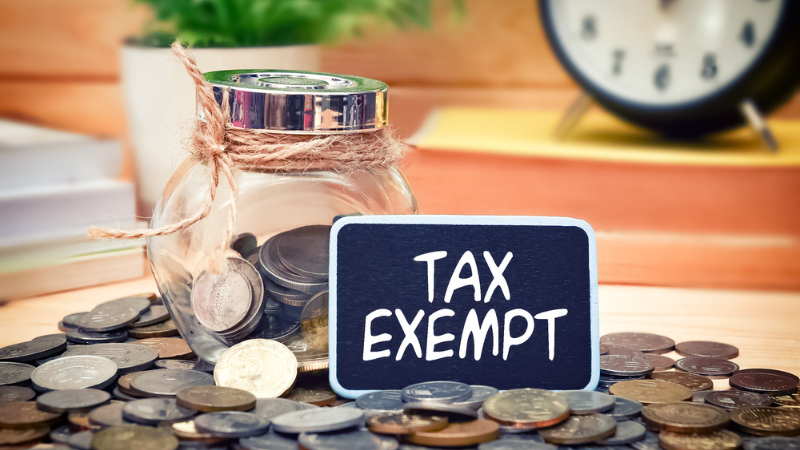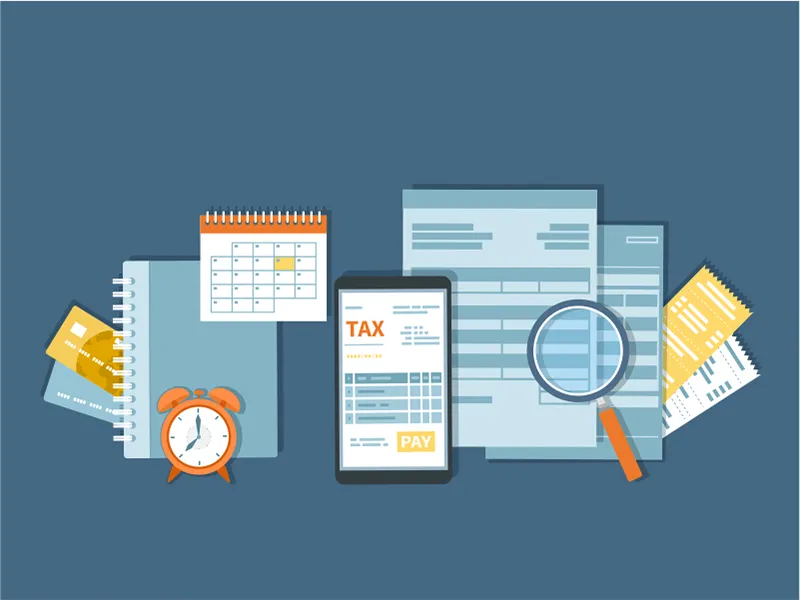
The filing of income tax returns is an important ritual for every taxpayer in the country. It is true that the tax returns for individual not requiring an audit is by the end of July (subject to various extensions declared by the Income Tax Department). However, the actual tax filing process starts way earlier when the employees are required to submit that investment proof to their employers.
Read More – Benefits of Filing ITR Even if You Don’t Fall Under the Taxable Slab
Here is a complete guide for submitting the investment proofs needed for investment declaration.
What is income tax investment proof?
Investment declaration is to be submitted in the prescribed form by every employee at the time of joining the organization and at the beginning of every year in February or March. The Income Tax Act has various provisions that provide deductions that can be used to reduce the overall tax liability. This declaration contains the details of all the investments made by the employee during the financial year. Based on the information given, the employers deduct the TDS that is to be deposited with the Government at the required due dates.
Why do you need to submit income tax investment proof to your employer?
The process of providing investment proofs is mandatory for every employee and is the standard procedure for every organization. Given below are a few factors which show why it is important to provide investment proof.
- Investment proof is required so the employers can calculate the income tax and the TDS that is to be deducted from each month’s salary to be deposited with the government.
- Tax-saving investments can help in reducing the tax burden. However, any deductions or exemptions are available only when proper evidence is provided to support the claim.
- It is the responsibility of the employer to gather evidence of all the investments declared by the employees to ensure that there are no false claims of tax-saving investments.
What are the important points to be considered while making tax-saving investments?
We have discussed the importance of providing investment proof for validating the claim for tax-savings investments. Let us now discuss the various points that have to be considered while investing in tax-saving instruments and other assets.
- The first step is to compute the tax before investing in assets that qualify for deduction under Section 80C.
- The next step is to check the amount already contributed and any further amount that needs to be contributed in the financial year.
- There are many sections in the Income Tax Act that provide deductions and exemptions from the gross total income. Therefore, employees can use many options for tax-saving investments rather than focusing only on investments under section 80C.
- Employees can invest in provident fund under section 80C to the extent of Rs. 1,50,000 and beyond this limit investing in PF will not qualify for any deduction.
- Apart from Section 80C, employees can get an excess deduction of up to Rs. 50,000 for investment in NPS under section 80CCD(1).
- Finally, there are a wide variety of options available for investment under section 80C, therefore, while choosing an investment it is equally important to align such investment with the financial goals.
What documents are required for income tax investment proof submission?
Given below is the list of tax-saving investments and the proof to be submitted for each investment.
| Qualifying Investment | Proof to be submitted |
| Public Provident Fund | Copy of the stamped deposit receipt paid during the current financial year, or,Copy of passbook clearly mentioning the PPF account. |
| ELSS mutual fund | Copy of investment certificate with details like employee name, date of investment, investment amount, type of investment, etc. |
| Life insurance policy | Premiums paid towards life insurance for self, spouse and/or children |
| Tax-saving FDs | Copy of the deposit receipt |
| HRA | Monthly rent receipts, Pan Card of the landlord (if rent amount is higher than Rs. 1,00,000)Revenue stamps to be fixed on cash payments |
| Housing Loan | Interest certificate from the bank/financial institution with the total interest and principal paid/due for the FY. Completion certificate of the house property from the builder, or, Self-declaration from the employee with the details of occupation |
| NSC | Copy of NSC Certificate in the name of the employee |
| Tuition Fees of children | Copy of tuition fees paid to educational institutions along with the nature of payment (donation fees, capitation fees, sports fees, transport fees, uniform and stationery fees, etc. |
| Post Office Term Deposit | Copy of deposit receipt (qualifying deposits are deposits over 5 years) |
| Preventive Health check-ups under section 80D | Copy of premium receipt paid during the year. Copy of the bills of preventive health check-ups in the name of employee or family |
| Medical expenses under section 80DD (for handicapped dependent) | Proof of amount spent for medical treatment, training and rehabilitation of handicapped dependent, or,Amount paid towards or deposited in any scheme of LIC, UTI or any other Board approved insurer for maintenance o0f handicapped dependent.Form 10-1A |
| Interest paid on higher education loan | Copy of the bank certificate mentioning the principal and the interest amount paid and the amount payable |
| House loan for first-time buyers under section 80EEA | This deduction on interest paid by first time buyers for loans taken to purchase a new home provided they meet the specified conditions |
| Deduction under section 80U | Deduction for disability up to Rs. 75,000 (Rs. 1,25,000 for severe disability) can be availed after providing a medical certificate from any Government Hospital in the prescribed manner. Copy of certificate Form 10-1A issued by a competent medical authority stating the percentage of disability. |
| Donations under section 80G | Valid receipts for the donations made that qualify for deduction under this section. Receipts should be in the name of the employee. |
Why do you need to submit income tax investment proof to your employer?
You need to submit income tax investment proof to your employer so that they can calculate the correct amount of tax deducted at source (TDS) from your salary.
When you submit investment proof, you are essentially telling your employer that you have already invested a certain amount of money in tax-saving schemes. This means that your employer can deduct a lower amount of TDS from your salary, as you will already be paying tax on your investments.
It is important to submit your investment proof to your employer by the deadline that they have specified. If you do not submit your proof by the deadline, your employer will deduct TDS on your entire salary, even if you have already invested in tax-saving schemes.
Conclusion
Submitting the investment proof is the responsibility of the employees and at the same time collecting them on a timely basis is the responsibility of the employer. It is necessary to deduct the tax payable from the monthly salary and deposit them with the government based on such investment proof failing which the employees may end up paying more tax.
FAQs
No. If the employees fail to provide the necessary proof for the investments declared by them, they cannot claim a deduction for the same.
Yes. Employees can claim deduction for an investment by providing the required supporting documentation even if they had not declared it earlier in Form 12BB.
If the employees have not submitted investment proofs earlier, their TDS will be deducted in excess. However, they can claim a refund of the same at the time of filing their ITR and providing necessary proofs at that time.
Yes interest on home loan and principal amount is eligible for deduction under section 80C and section 24 respectively provided a bank certificate for the same is submitted as investment proof.


























